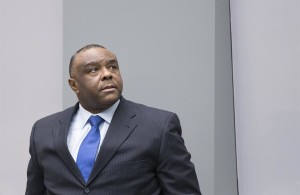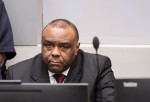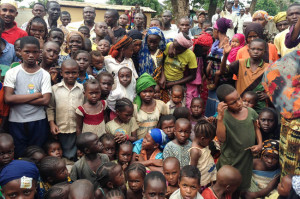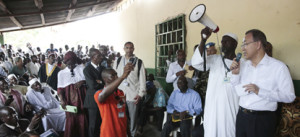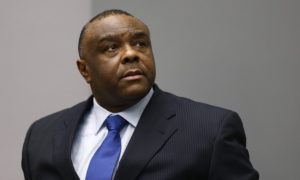
Jean-Pierre Bemba ©Michael Kooren/AFP/Getty Images
Today, Trial Chamber VII of the International Criminal Court (ICC) ruled on the accusations of offences against the administration of justice against Jean-Pierre Bemba Gombo, Aimé Kilolo Musamba, Jean-Jacques Mangenda Kabongo, Fidèle Babala Wandu and Narcisse Arido. The five accused were found guilty of various offences relating to the false testimonies of defence witnesses in another case before the ICC: The Prosecutor v. Jean-Pierre Bemba Gombo (Main Case).
The Chamber found that Mr. Bemba, Mr. Kilolo and Mr. Mangenda were guilty, as co-perpetrators, for having jointly committed the offences of intentionally corruptly influencing 14 defence witnesses, and presenting their false evidence to the court. The three accused were also foud guilty of either soliciting, inducing or aiding and abetting false testimonies by the defence witnesses. In addition, the Chamber found Mr. Babala guilty of aiding the corrupt influencing of two defence witnesses, and Mr. Arido was found guilty of corruptly influencing four defence witnesses.
The judgment was delivered today, 19 October 2016, during a public hearing in the presence of all five accused. The Prosecutor and the Defence may appeal the judgment within 30 days. For these types of offences, according to the Rome Statute, the judges may impose a term of imprisonment not exceeding five years and/or a fine. The Chamber shall pronounce the penalties at a subsequent stage.
On 21 March 2016, Jean-Pierre Bemba was found guilty by the ICC of war crimes and crimes against humanity committed in the Central African Republic in 2002-2003. On 22 June, Mr. Bemba was sentenced to 18 years’ imprisonment. In September, the Defence for Mr. Jean-Pierre Bemba filed an appeal against his conviction for war crimes and crimes against humanity in front of the Appeals Chamber of the ICC.
The summary of the judgment can be found here and the delivery of the judgment can be watched here.

